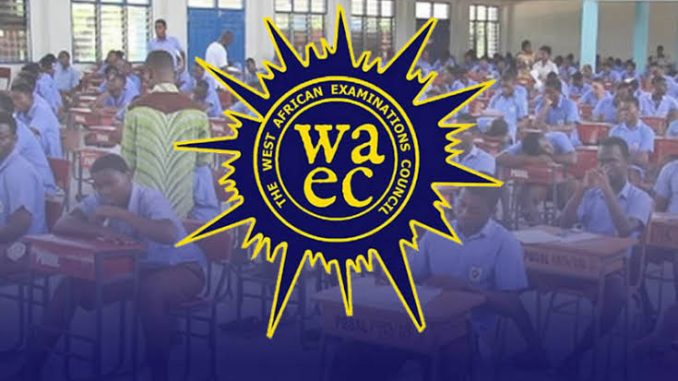

(1) ATTENTION :- PLEASE DONT COME HERE FOR FREE ANSWER… BE WARNED
(2) ATTENTION:- YOU ARE ADVISE TO SEND YOUR SUBSCRIPTION DETAILS ON WHATSAPP… ADD US ON WHATSAPP WITH => 09054348225
WAEC GCE 2023 CIVIC EDUCATION
NUMBER 1
(1)
(i) Traffic Law Enforcement: Government agencies, such as the Federal Road Safety Corps (FRSC) and state traffic management authorities, are responsible for enforcing traffic laws. They conduct regular patrols, set up checkpoints, and take necessary actions against traffic violators.
(ii) Issuing Traffic Citations and Penalties: Agencies issue traffic citations and penalties to individuals who violate traffic regulations. This serves as a deterrent and encourages compliance with road safety rules.
(iii) Public Education and Awareness: Government agencies conduct public education campaigns to raise awareness about traffic regulations, safe driving practices, and the consequences of non-compliance. This includes media campaigns, road safety workshops, and community outreach programs.
(iv) Road Safety Inspections: Agencies carry out road safety inspections to ensure that vehicles comply with safety standards. This includes checking for proper documentation, roadworthiness, and adherence to vehicle specifications.
(v) Traffic Control and Management: Government agencies are responsible for the design and implementation of traffic control measures, such as traffic signals, road signs, and markings. Proper traffic management helps regulate the flow of vehicles and pedestrians, reducing the risk of accidents.
(vi) Accident Investigation and Reporting: Agencies investigate road accidents, gather data, and generate reports to understand the causes of accidents. This information is used to improve road safety policies, infrastructure, and public awareness campaigns.
(vii) Licensing and Vehicle Registration: Government agencies oversee the process of licensing drivers and registering vehicles. This ensures that only qualified individuals operate vehicles on the road and that vehicles meet safety standards.
(viii) Infrastructure Development and Maintenance: Government agencies are involved in the planning, development, and maintenance of road infrastructure. Well-designed and properly maintained roads contribute to safer driving conditions and reduce the likelihood of accidents.
•••••••••••••••••••••••••••••••••
(2)
(i) Discrimination and Prejudice:
Discrimination based on factors such as race, ethnicity, gender, religion, or social class can hinder individuals and groups from fully exercising their rights. Prejudice and bias may lead to unequal treatment, exclusion, and denial of opportunities, limiting access to education, employment, and other essential services.
(ii) Political Repression:
Governments or political entities may engage in repressive measures that curtail individual and group rights. This can include restrictions on freedom of speech, assembly, and association. Political repression may lead to the suppression of dissenting voices and limit the ability of individuals and groups to express their opinions or advocate for their rights.
(iii) Economic Inequality:
Economic disparities and unequal distribution of resources can hinder individuals and marginalized groups from enjoying their rights. Limited access to education, healthcare, and economic opportunities often perpetuates a cycle of poverty, preventing individuals from fully participating in societal activities and exercising their rights.
(iv) Lack of Access to Education:
Denial of education or limited access to quality education can be a significant hindrance to the realization of individual and group rights. Education is crucial for personal development, empowerment, and the ability to engage actively in society. Barriers to education, such as discrimination or inadequate resources, can limit opportunities for individuals and groups.
(v) Arbitrary Governance and Corruption:
Corrupt practices and arbitrary governance can undermine the rule of law and erode individuals’ and groups’ trust in institutions. Corruption may lead to the misallocation of resources, denial of services, and unequal application of the law. This can hinder the effective exercise of rights and contribute to a sense of injustice within society.
••••••••••••••••••••••••••••••••••
(3a)
Tolerance refers to the open-mindedness and acceptance of diverse ideas, cultures, beliefs, and identities.
(3b)
(i) Education about diversity: Learning in schools and communities to understand and appreciate differences in cultures, beliefs, and backgrounds, teaching the importance of respecting each other’s uniqueness.
(ii) Talking and sharing between different groups: Encouraging conversations and exchanges between various ethnicities to understand each other better, share experiences, and build empathy.
(iii) Celebrating cultures together: Participating in events and festivals that showcase the traditions, customs, and values of different ethnic groups, fostering mutual appreciation and understanding.
(iv) Fair laws for everyone: Implementing laws and policies that ensure equal rights, opportunities, and fair treatment for individuals from all ethnic backgrounds.
(v) Showing positive stories in media: Portraying diverse ethnicities positively in the media, sharing stories that highlight unity, collaboration, and contributions from different cultural groups.
(vi) Working together on community projects: Collaborating on projects like community development initiatives or social activities that involve members from various ethnic groups, promoting teamwork and shared goals.
••••••••••••••••••••••••••••••••••••
(1) ATTENTION :- PLEASE DONT COME HERE FOR FREE ANSWER… BE WARNED
(2) ATTENTION:- YOU ARE ADVISE TO SEND YOUR SUBSCRIPTION DETAILS ON WHATSAPP… ADD US ON WHATSAPP WITH => 09054348225
SECTION B
(4a)
(i) National Youth Service Corps (NYSC): The NYSC is a government program that aims to foster unity and develop the skills of Nigerian youths through a one-year mandatory service period.
(ii) Federal Ministry of Youth and Sports Development: This ministry is responsible for formulating and implementing policies, programs, and initiatives that promote the empowerment and development of Nigerian youths.
(iii) National Directorate of Employment (NDE): The NDE is an agency that focuses on job creation, skill acquisition, and entrepreneurship development for Nigerian youths.
(4b)
(i) Education and Skill Development: Provide access to quality education and vocational training programs to enhance their knowledge and skills.
(ii) Entrepreneurship Support: Offer funding, mentorship, and resources to encourage young people to start their own businesses and become self-reliant.
(iii) Employment Opportunities: Create job opportunities through public and private sector collaboration, ensuring fair employment practices and equal opportunities for all.
(iv) Civic Engagement: Encourage young people to actively participate in community development, governance, and decision-making processes.
(v) Access to Healthcare: Ensure access to affordable healthcare services, including reproductive health education and services, to promote the well-being of Nigerian youths.
(vi) Mentoring and Leadership Development: Establish mentorship programs and leadership training initiatives to guide and inspire young people to become future leaders.
••••••••••••••••••••••••••••••••••••
(1) ATTENTION :- PLEASE DONT COME HERE FOR FREE ANSWER… BE WARNED
(2) ATTENTION:- YOU ARE ADVISE TO SEND YOUR SUBSCRIPTION DETAILS ON WHATSAPP… ADD US ON WHATSAPP WITH => 09054348225
SECTION C
(9)
(CHOOSE ANY FIVE)
(i) Lack of Representation: Citizens’ non-involvement can lead to a lack of diverse perspectives and representation in political decision-making, as those in power may not fully understand or address the needs of the entire population.
(ii) Policy Misalignment: Without active citizen engagement, policies may not align with the actual concerns and aspirations of the people, potentially resulting in ineffective or misguided governance.
(iii) Erosion of Democratic Values: Non-involvement can contribute to the erosion of democratic values, as an informed and engaged citizenry is crucial for the functioning of a healthy democratic system.
(iv) Increased Corruption Risks: A disengaged citizenry may create an environment conducive to corruption, as there may be less scrutiny and oversight of government activities.
(v) Limited Social Cohesion: Political disengagement can weaken social cohesion, as citizens may feel disconnected from each other and their shared responsibilities in shaping the future of their nation.
(vi) Vulnerability to Authoritarianism: Apathy towards political affairs can make a society more susceptible to authoritarian tendencies, as citizens may be less likely to resist or challenge undemocratic practices.
(vii) Ineffective Social Change: Lack of citizen involvement can hinder the progress of social movements and initiatives, making it challenging to address pressing issues or advocate for positive change.
(viii) Diminished Civic Education: Non-participation may lead to a decline in civic education and awareness, reducing the overall understanding of political processes and the importance of civic responsibility.
(ix) Stagnation of Innovation: A politically disengaged population may be less likely to push for innovative policies and solutions, hindering societal progress and adaptability to changing global dynamics.
BONUS ANSWER
(8)
(CHOOSE ANY FIVE)
(I) Advocacy Campaigns: CSOs often employ advocacy campaigns to raise awareness about specific issues and promote positive changes. These campaigns may include public education, media outreach, and grassroots mobilization.
(ii) Policy Research and Analysis: CSOs conduct in-depth research and analysis on various societal issues to provide evidence-based recommendations for policy improvements. This information can be crucial in influencing legislative changes.
(iii) Coalition Building: CSOs often form alliances and coalitions with like-minded organizations to amplify their collective impact. Working together allows them to pool resources, share expertise, and present a unified front for positive change.
(iv) Lobbying and Engagement with Decision-Makers:** CSOs engage in direct lobbying efforts to influence policymakers and decision-makers. This can involve meeting with government officials, participating in public hearings, and presenting research findings to legislative bodies.
(v) Community Mobilization: Mobilizing communities is a powerful tool for CSOs. By engaging and empowering local communities, these organizations can create a groundswell of support for positive changes and grassroots initiatives.
(vi) Litigation and Legal Advocacy: CSOs may resort to legal avenues to challenge unjust policies or practices. Through litigation and legal advocacy, they seek to bring about changes by holding institutions accountable in the courts.
(vii) Social Media and Digital Activism: CSOs leverage the power of social media and digital platforms to reach a wider audience. Online campaigns, petitions, and social media activism can be effective in mobilizing public support and raising awareness.
(viii) Capacity Building: CSOs invest in capacity building within communities, empowering individuals with the knowledge and skills to advocate for positive changes on their own. This sustainable approach strengthens the fabric of civil society.
(ix) Public Awareness Campaigns: Creating awareness among the general public is a key strategy. CSOs use various communication channels to inform and educate people about social issues, fostering a sense of responsibility and encouraging collective action.
(x) Monitoring and Evaluation: CSOs monitor the implementation of policies and programs, holding authorities accountable for their promises. Through rigorous evaluation, they assess the impact of interventions and advocate for adjustments when necessary, ensuring continuous improvement in societal conditions.



Leave a Reply